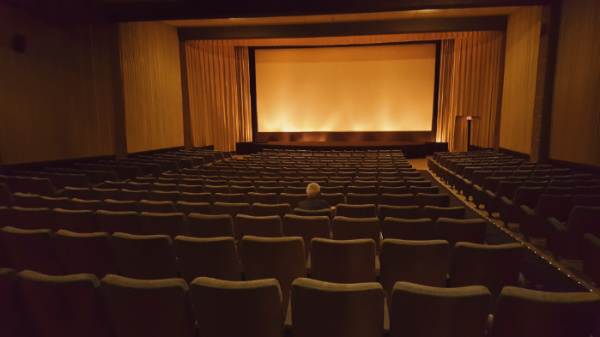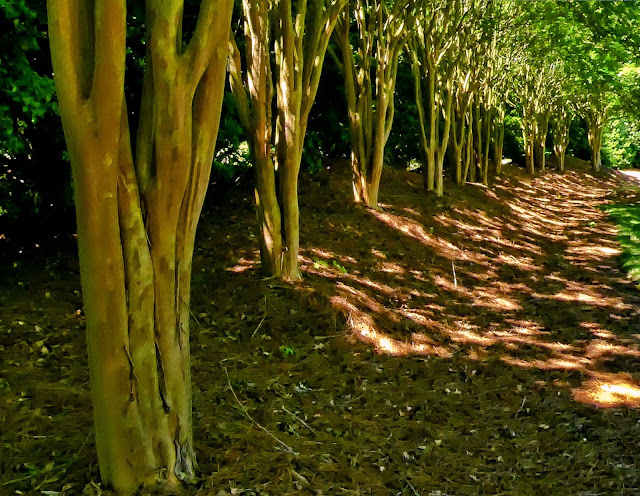 |
| Snowy backyard in January |
Jesus said to the crowds:"This is how it is with the Kingdom of God; it is as if a man were to scatter seed on the land and would sleep and rise night and day and the seed would sprout and grow, he knows not how. Of its own accord the land yields fruit, first the blade, then the ear, then the full grain in the ear. And when the grain is ripe, he wields the sickle at once, for the harvest has come." Mark 4:26-29
It is interesting that "parable" and parabola" come from the same Greek word, παραβολή (parabolē.) The root word means placing two things side by side. So in the first sense it is a metaphor or simile and in the second, " a two-dimensional, mirror-symmetrical curve." The difference is that a parable presents two things that are in contrast or even conflict, the better to stimulate thought and reflection. In a parabola the two images are the same or at least mirror images.
Here is a classic description of a parable from C. H. Dodd as quoted by C. Clifton Black in the
Abingdon New Testament Commentaries: Mark:
At its simplest the parable is a metaphor or simile drawn from nature or common life, arresting the hearer by its vividness or strangeness, and leaving the mind in sufficient doubt about its precise application to tease it into active thought.
The passage from Mark is a great example of this. Chapter Four of Mark contains several parables, one after another. Today's reading actually contains another parable about the mustard seed. But the one I have quoted above was surely a shock to those who heard it. After all, Jesus begins by saying he wants to talk to them about the Kingdom of God and what it is (will be) like. His audience would be expecting the long promised Messiah to speak about the restoration of the kingdom of Israel and establishing its preeminent position among the nations. Instead he draws from the everyday world of peasants of his day. We scratch our heads as surely they must have and wonder exactly what the point is. Recognizing the inadvisability of trying to immediately "understand" a parable and after some prayerful reflection, I offer the following tentative understand, at least for the time being.

Imagine field lying fallow with no plants. It is desolate and forlorn, much like the winter landscape in the Finger Lakes Region of New York where I live. Nothing is growing other than a few volunteer weeds or left over crops. Further imagine you are a peasant farmer in First Century Galilee. When spring arrives, you sow seeds in the field and then go about your daily life, sleeping and rising in a continuous cycle of life. Without any care on your part, the seeds sprout, grow into plants, set fruit and become ready for harvest. It is almost as though there is a reality of which we are unaware that brings life to an otherwise dead field.

There is an inevitability about this process that takes place reliably without our intervention. There is a principle of life that is hidden from us and at the same time impacts our world. It is not magic although it might seem that way to some. When we look at the field above and the field to the right, we see what we see but we don't really understand that the reality is not what we see but the principle of life that transforms one into the other. Jesus says that this is how it is with the Kingdom of God.
The Reign of the Divine One has already come. Remember that Jesus says that the Kingdom of God is already here, within us. And yet, we know that the justice and mercy that are integral to this kingdom are not uniformly and often not at all present in the world we see and experience. And yet the Kingdom is here and working is inevitably way toward fruition at the end of time: the field ready for harvest.
We have nothing to do with this process. It is set in motion and sustained by the Divine One whether or not we recognize it, facilitate it or try to frustrate it. It is the Divine One's work and it will be brought to completion. All we can do is recognize it and accept it. Even that is not our work but somehow made possible by the action of the Divine One in and through us. This was not what his audience was expecting to hear from the Messiah. And it is not what we expect to hear. It leaves us with no where to go, or so it seems.
Jesus is clear about the implications for us. We are to do the will of the Divine One, who sent Jesus into the world. In the midst of injustice, evil, hardness of heart and all the other characteristics of "the world," we are to love the Divine One which means that we enter into prayerful union and try to be part of that underlying and almost invisible life that is working its way to fruition. And we are to love one another and all that the Divine One has created. And we are to do in the way that Jesus did: without reservation and with any return. He even loved those who murdered him. We can live our lives that way because we have the assurance of faith that the field is greening and maturing and that all will be well. Our efforts to manage human affairs--political, social and economic--in ways consistent with our call to love each other are important and need to be ongoing. The ultimate success is not ours but the Divine One's.




























